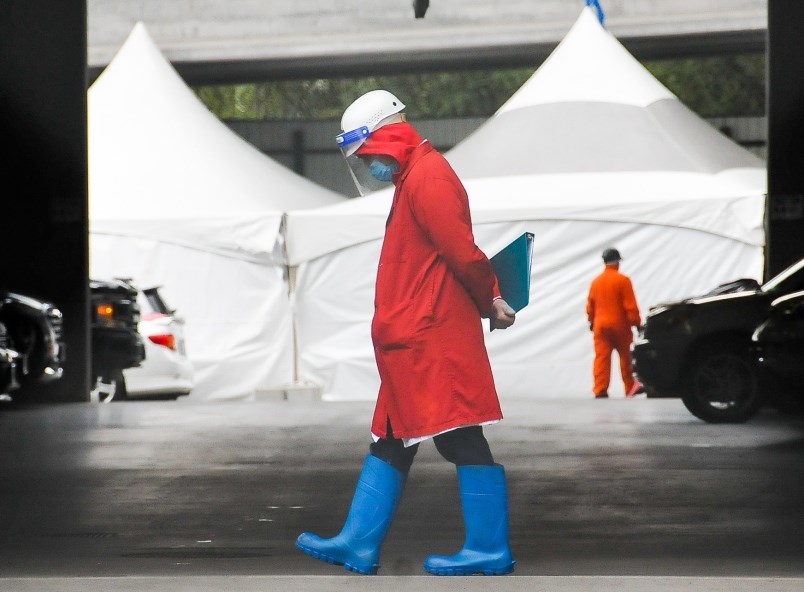A Coquitlam poultry processing plant was on lockdown Thursday morning, April 23, as what appeared to be a Fraser Health SWAT team entered the premises donning masks and gloves.
On Wednesday, Fraser Health’s top doctor, Dr. Martin Lavoie, told The Tri-City News, “We haven’t identified any .”
But by the next morning, an employee at the Superior Poultry Processors Ltd., who withheld his full name because he was not authorized to speak to the press, said the entire workforce was being tested for COVID-19.
Two cases of COVID-19 have now been isolated at a Coquitlam poultry plant as part of an ongoing outbreak, B.C.’s provincial health officer Dr. Bonnie Henry announced Thursday.
"There’s likely to be others in the new facility who are ill," said Henry.
The revelations come only two days after health authorities identified 28 cases at a Â鶹´«Ã½Ó³»poultry plant (that number jumped to 29 Thursday).
At the gate of the Coquitlam facility, a team of people wearing scrubs and identifying themselves as employees of Fraser Health would not comment on why they were there or what they were doing.
A spokesperson for Fraser Health has also not yet confirmed the existence of an investigation at the facility, nor if anyone at the plant has tested positive for the virus.
But at a nearby business, one employee told The Tri-City News he has witnessed operations at the processing plant shift in recent days. Employees wearing a full garb of personal protective equipment have manned the gates at all hours of operation, preventing anyone from entering, including this reporter.

Kristan Ash, executive director of the Fraser Northwest Divisions of Family Doctors Practice Society, said her organization has been involved with several outbreak investigations across the Tri-Cities and New Westminster, though she would not confirm any ongoing activity at Superior Poultry Processors.
Ash did say that since the announcement of dozens of cases at United Poultry Co. Ltd. in Vancouver, FNWD has turned its attention towards three poultry plants in the Tri-Cities in preparation for any outbreak.
“The average outbreak — even at the long-term care facility — is about 28 days,” said Ash. “If all three get shut down, and the average is 250 per site, that’s a huge economic hit to the community.”
In the past, Ash said she’s done consulting work for food processing facilities, and in that work found most workers are new arrivals to Canada, who often don’t speak English and sit at the bottom of the economic ladder.
“They work long hours in very close quarters,” Ash said. “They’d be significantly at risk.”
That risk is not thought to extend to the food coming out of the plant and Dr. Bonnie Henry told the press Wednesday there is no evidence that the virus can be easily transmitted through processed foods.
What is a risk, said Ash, is the impact the shuttering such businesses could have on food production, especially when considering outbreaks at several other meat and poultry processing plants across Canada and the U.S.
Catching an infected worker early and providing them with paid leave is the best way to keep an outbreak under control within a large essential workforce, she added, echoing Premier John Horgan, who Wednesday said he was planning a meeting with Labour Minister Harry Bains and WorkSafe BC officials to discuss sick pay provisions.
“I’d encourage larger businesses not to try and hide or cover [an outbreak] up but to ask for help early,” Ash said. “They don’t want their business to be shut down. But if your staff is sick, it’s inevitable that the virus will spread.”
With COVID-19 testing restrictions relaxed this week, those with a larger workforce are encouraged to reach out directly to FNWD for advice and support.
The organization can be reached at by emailing [email protected].
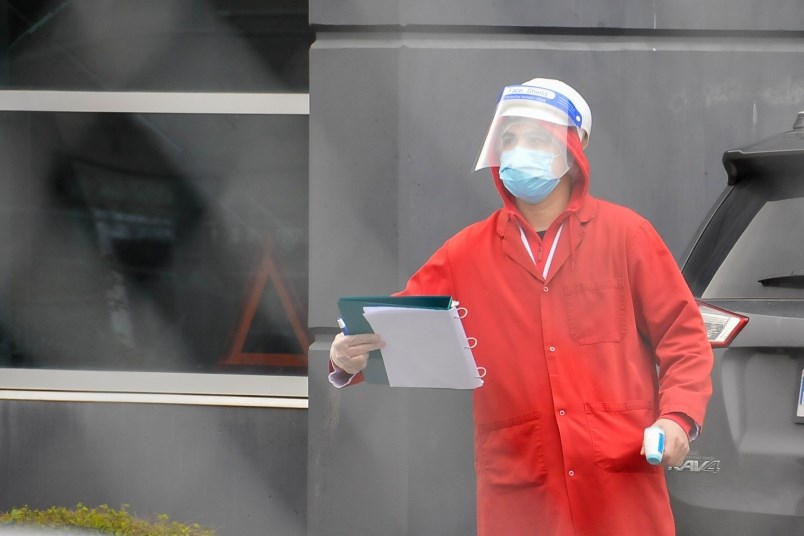 An employee at Superior Poultry greets a team from Fraser Health.An employee at Superior Poultry greets a team from Fraser Health.Photograph By STEFAN LABBÉ/THE TRI-CITY NEWS
An employee at Superior Poultry greets a team from Fraser Health.An employee at Superior Poultry greets a team from Fraser Health.Photograph By STEFAN LABBÉ/THE TRI-CITY NEWS
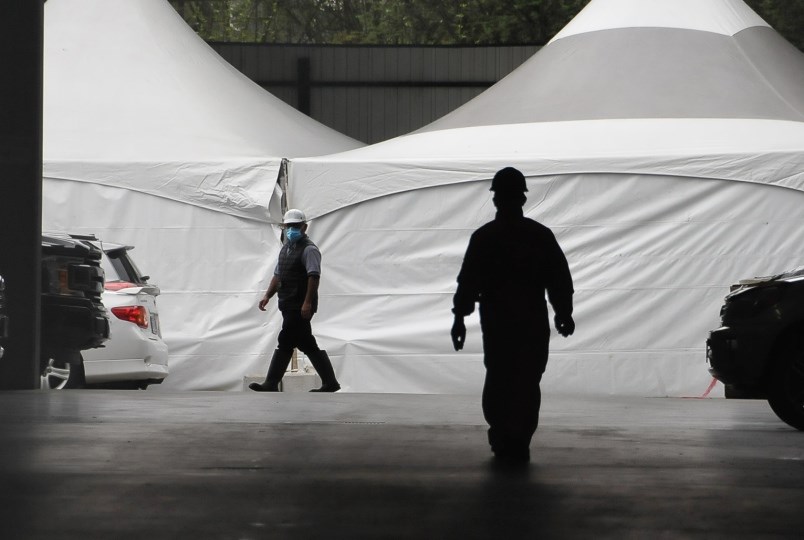 Employees of Coquitlam poultry plant where masks while health care workers move to allegedly test thEmployees of Coquitlam poultry plant where masks while health care workers move to allegedly test the workforce for COVID-19Photograph By STEFAN LABBÉ/THE TRI-CITY NEWS
Employees of Coquitlam poultry plant where masks while health care workers move to allegedly test thEmployees of Coquitlam poultry plant where masks while health care workers move to allegedly test the workforce for COVID-19Photograph By STEFAN LABBÉ/THE TRI-CITY NEWS
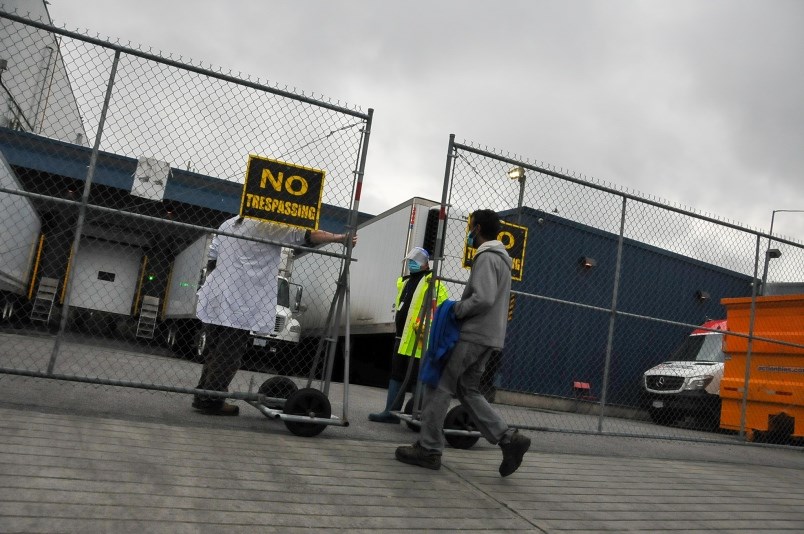 An employee enters a Coquitlam poultry factory on lockdown Thursday. According to a neighbouring business, the facility has tightened restrictions over the last several days.Photograph By STEFAN LABBÉ/THE TRI-CITY
An employee enters a Coquitlam poultry factory on lockdown Thursday. According to a neighbouring business, the facility has tightened restrictions over the last several days.Photograph By STEFAN LABBÉ/THE TRI-CITY
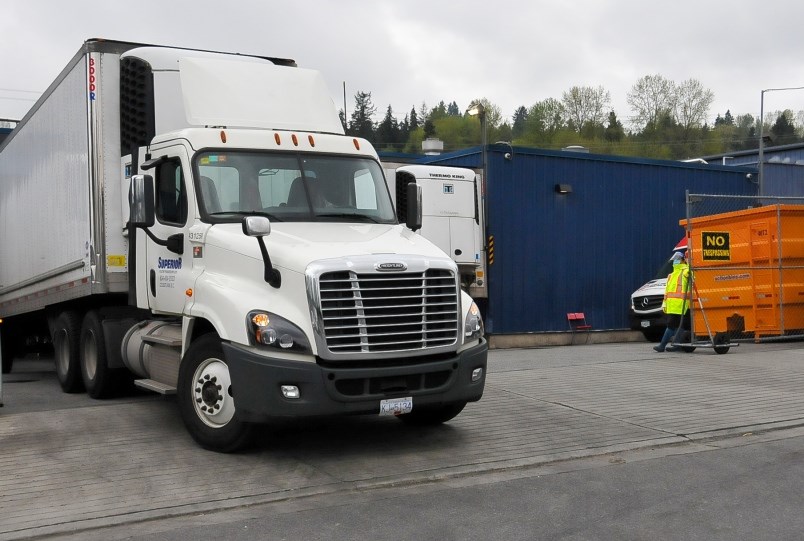 A truck leaves Superior Poultry Processors Ltd. while health care workers test for COVID-19 insideA truck leaves Superior Poultry Processors Ltd. while health care workers allegedly test for COVID-19 insidePhotograph By STEFAN LABBÉ/THE TRI-CITY NEWS
A truck leaves Superior Poultry Processors Ltd. while health care workers test for COVID-19 insideA truck leaves Superior Poultry Processors Ltd. while health care workers allegedly test for COVID-19 insidePhotograph By STEFAN LABBÉ/THE TRI-CITY NEWS
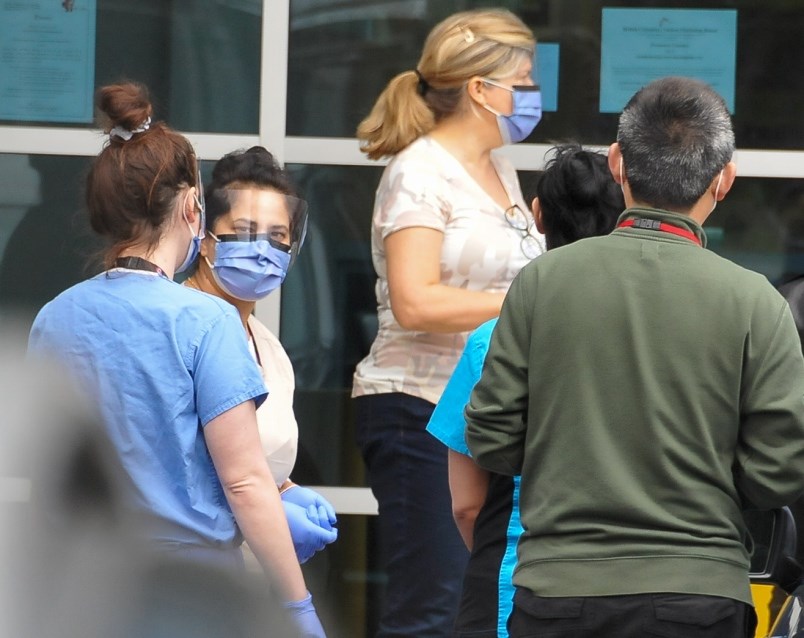 Health care workers identifying themselves as Fraser Health enter Superior Poultry Processors Ltd. A worker told the Tri-City News they were testing staff for COVID-19.Photograph By STEFAN LABBÉ/THE TRI-CITY NEWS
Health care workers identifying themselves as Fraser Health enter Superior Poultry Processors Ltd. A worker told the Tri-City News they were testing staff for COVID-19.Photograph By STEFAN LABBÉ/THE TRI-CITY NEWS
Read more from the
